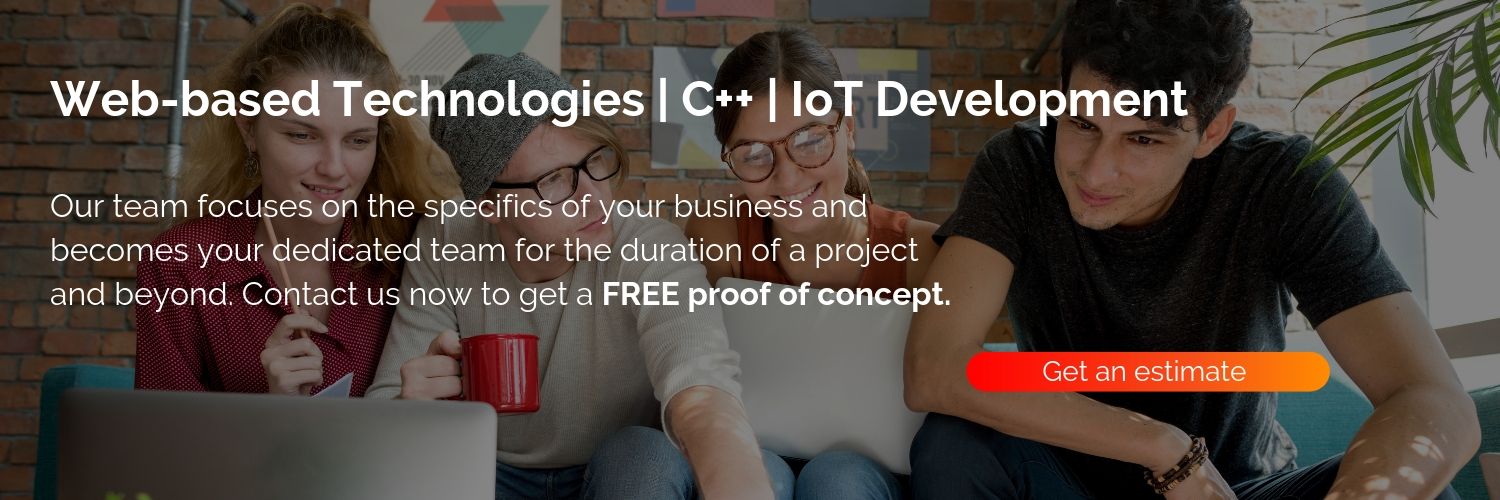I think there’s no doubt that invention of Internet was one of the greatest innovations of previous century. It was the first step that allowed the world to connect in a way it has never been before. Internet gave us an enormous platform to create, develop and innovate. One of its inventions is Internet of Things – also known as IoT. That’s what we’re going to focus on in this article.
What is IoT?
Internet of Things is a very broadly defined concept of connecting devices or objects into synchronized network without human interaction. To simplify it even more, IoT is basically adding an internet connection to something that originally hasn’t been using it. It allows systems to communicate with each other and create and exchange data. Kevin Ashton is a founder of this terminology, however the idea has been there before.
Why is IoT gaining so much popularity?
IoT market is growing with an enormous rate. The World’s already noticed the capabilities that come with its implementation. According to IDC report on IoT Spendings, in 2019 there will be 745 billion dollars spend on IoT systems. In comparison to 2018, it’ll be a 15,4% growth, with 646 billion dollars spent last year. It’s forecasted to stay on a two-digit rate throughout the whole 2017-2022 predictions. Internet of Things is going to surpass 1 trillion dollars mark in 2022. Concept of networking devices became a must have for every business to be able to grow, increase productivity and minimize its costs.

Capabilities of IoT
There’s pretty much no limitations when it comes to the type of ‘things’ we can upgrade to the IoT level. It has evolved much more than just M2M (Machine to Machine) communication. IoT begins with small Smart Class systems but it’s not all it is. It also allows to develop much more complicated and complex projects. What’s so amazing is that Internet of Things is very scalable and can be used in a variety of different ways.
IoT in Smart Home
The simplest form of IoT that surrounds us are devices in our homes. To the group of Smart Home devices we include gadgets like robotic vacuum cleaner, automatic garden watering systems or even self-calibrating heating systems. Internet of Things is turning the kettle on from your phone on your way home. It can also be a RFID system that can verify whether there’s anyone in the house. Therefore, your home can automatically lock the door, close the blinds or lower the temperature. Moreover, thanks to IoT you can build a Passive House that can produce the energy for itself and even generate excess energy.
Related: IoT Solutions For Smart City: 10 Use Cases That Will Change Our Lives
IoT in Business Management
The reason IoT in evolving with such a high rate is its ability to better every business management. The competition on the market is very strong and companies need to invest in order to profit. IoT allows better assets tracking that can be useful everywhere. For instance, airports can use beacons to locate luggages. Therefore, there won’t be anymore situations there there’s a bag missing. Beacons are also used as a navigation system. As opposed to GPS, beacons work very well inside buildings. But it’s not only about tracking. IoT can be used to modernize your whole product production. You can minimize human contribution and your devices can be programmed to self-calibrate and work independently without the need to be controlled.
Related: Internet of Things and 10 issues you can solve with it
IoT in Smart City
Internet of Things can be a solution to many modern problems that big cities face on a day-to-day basis.There’s a necessity to better the infrastructure sticking to the sustainable development strategy. That’s a modern challenge that cities face nowadays. A great example of a Smart City is Copenhagen that focuses on air pollution reduction. They strongly support bicycle transportation and focus on enabling non-stop ride with a Green Wave project. Therefore, bikers can ride throughout the whole town without coming across any red light along the way. Creating a networking system of lights allowed the city to decrease the number of cars on the road. If you want to find out more about Copenhagen as a Smart City, I recommend reading article ICT in Copenhagen on a Copenhagen Capacity organization site. Solutions mentioned in that article are exactly what IoT in capable of doing.
Related: IoT Solutions For Smart City: 10 Use Cases That Will Change Our Lives
IoT in AutoMotive
When it comes to AutoMotive Industry, IoT also has its way there. The newest cars have a lot of smart devices implemented for a baseline. There are things like fingerprint door locks, smart ventilation systems and many more. Thanks to Internet of Things car can become a network on a road and exchange important data. Moreover, cars can be equipped with system that alarms on the need of repair. Then it sends that information automatically to the garage and orders needed parts so they’re already in the shop when you get there. The capabilities are pretty much unlimited.
Related: 7 IoT Use Cases in Transportation and Logistics
IoT in Healthcare
Internet of Things is not only about business and maximizing your income. It can help us reduce health issues and help hospitals to work more efficiently. Soon there will be beds that can analyze the patient state and inform the nurses on an app, alarming whenever anything’s out of the norm. Moreover, hospitals can use beacons to track important devices that often change location. Not only hospitals can benefit from IoT. Diabetics can use apps that can track the insulin level and automatically even it out when needed. There’s many apps and devices that track out heartbeat, stress level and the amount of calories burnt. Those are just a snippet of what Internet of Things can do to a Healthcare Industry.
IoT in Retail
Retail also saw the possibilities of IoT and decided to better their sale rate with it. Internet of Things allows to optimize the delivery process generating informations about the conditions during the transportation. Moreover it can help you analyze important factors to perhaps reduce production and ultimately costs. But there’s much more than that. Thanks to RFID system, brands can minimize theft rate or maximize the amount of products available for the customers on the shop floor. Beacons also find their way into retail industry. They can send specially personalized discount coupons, adds and other informations to the nearest placed people in the mall. Beacons can be a way to map the traffic within the whole store or mall area to state the hottest selling area.
Future
Michio Kaku is an extremely popular scientist that talks a lot about the futuristic world. He believes that soon technology will allow us to gather parameters of our body condition from a Smart Toilet that will exam our fluids. He even goes further in his predictions. Technology will connect to a human brain and allow us brain-to-brain interaction. We’ll be able to store our dreams and project them. There’s no limits when it comes to the vision of tomorrow. The only barriers are the ones that we set by ourselves.
‘I have concluded that we are in a world made by rules created by intelligence.’
– Michio Kaku
Challenges of IoT
The biggest challenge of implementing IoT project is its ability to integrate to another systems. There’s no standards when it comes to developing IoT devices. This causes the need to develop new software for every solution even if it was already used before. Moreover, there are still security concerns that stop people from choosing IoT solutions. There’s definitely a need to expand this market and better its capabilities so it can be used in its full potential. However, we believe that Internet of Things is a huge step forward and the right way to go.
Related: Technical IoT Challenges – How to Prevent Them From Ruining My Project?









